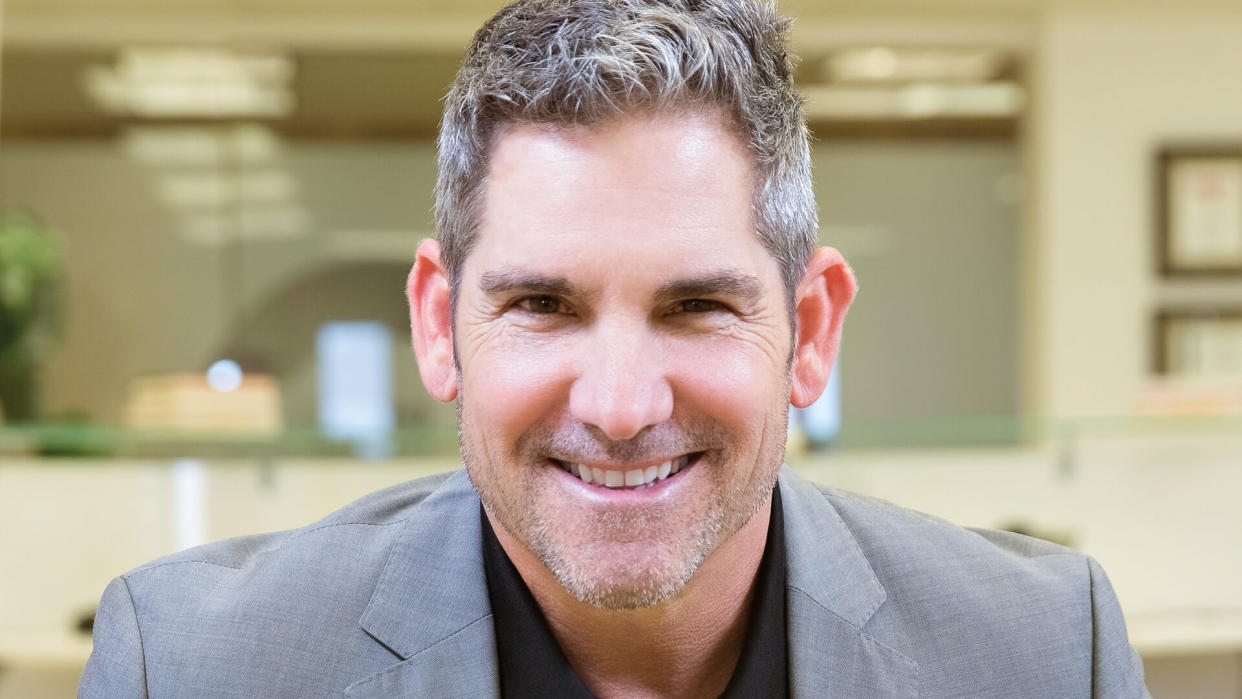Grant Cardone Says ‘Buying a House Is the Worst Investment’ — Is He Right?

Grant Cardone is a real estate mogul who built a $4 billion multi-family property portfolio from scratch, so you might assume his first piece of investment advice would be to buy a house.
Look Here: More Americans Can Afford To Buy a Home in These 20 Cities
Check Out: 3 Things You Must Do When Your Savings Reach $50,000
But “The 10X Rule” author is full of surprises.
He recently posted on Instagram, “Buying a home without a doubt is the WORST investment people can make, yet it’s also the most common one. Is it because [of] the lack of knowledge people have when it comes to financial education? Or is it just because too many people are trying to fulfill their American dream?”
Despite the recent turmoil in the housing market, millions of Americans still aspire to homeownership and view it as a springboard to middle-class security. So, are they wrong, or is Cardone?
Right or Wrong, Cardone Has His Reasons
In a recent Instagram post, the celebrity speaker and author laid out some numbers to back up his unconventional position on homeownership.
He used the example of a hypothetical $576,000 house that the homeowners stay in for 10 years. Beyond the hefty sale price — which is well above the $346,270 national median — he cautioned his audience that they also would have to pay:
Bank interest: $403,200 or 70%
Property taxes: $115,200 or 20%
Broker fees: $69,120 or 12%
Maintenance fees: $57,600 or 10%
That’s a total of $645,120 on top of the $576,000 cost of the home, which adds up to $1,221,120.
Cardone wrote, “A $576,000 home will have to be sold for $1.2 million in 10 years — you’re not going to sell it for that — to break even.”
He used the term “dead money” to describe capital that isn’t generating significant returns and is locked up in an illiquid state for a long time — i.e., home equity.
I’m a Real Estate Agent: Here Are the 6 Cities Where You Should Avoid Buying a Home This Summer
Cardone Tells Only One Side of the Story
Whether his math was accurate to the dollar or not, Cardone’s overall point is hard to argue — the cost of owning a home goes beyond just the price of the house.
“Grant Cardone is correct in that there are many costs associated with homeownership, such as mortgage payments, taxes and maintenance costs,” said Gagan Saini, CEO of Cash Home Buyers. “However, homeownership is still a good investment for many people. Homeownership provides stability and security, as well as the potential for equity appreciation. Additionally, homeownership can be a great way to build wealth over time.”
Saini is hardly alone in his assessment.
“I disagree with Mr. Cadone’s position that buying a house is not a good investment,” said Brett Johnson, owner of Cash For House Pro, a house-flipping company in Colorado.
He laid out five benefits of homeownership that can justify the costs, which Cardone omitted in his post.
Long-Term Appreciation
Johnson points out that, historically, real estate has shown the potential to grow in value in the long term.
“Data from reputable sources, such as the Case-Shiller Home Price Index, consistently show that home prices tend to appreciate over time,” he said. “For example, from 1980 to 2020, the index indicated an average annual price increase of 3.7% for U.S. residential properties. This steady appreciation illustrates the potential for homeowners to accumulate wealth and enjoy a respectable return on investment.”
Building Equity
If you don’t own a home, you pay rent, which builds equity, pays the mortgage and generates cash flow for a stranger.
“Instead of paying rent to a landlord, mortgage payments allow individuals to gradually increase their ownership stake in the property,” Johnson said. “Data supports the notion that owning a home helps build equity over time.”
In many cases, equity translates to wealth.
“According to the Federal Reserve, the average homeowner’s net worth is significantly higher than that of renters,” Johnson said. “This disparity is primarily due to the accumulation of home equity, which serves as a valuable asset. Homeowners benefit from increasing their ownership stake through monthly mortgage payments, eventually leading to financial stability and increased net worth.”
Favorable Tax Benefits
Cardone made every effort to point out the potential expenses of buying a house, but he left out the write-offs.
“Tax advantages further bolster the case for homeownership,” Johnson said. “For instance, mortgage interest and property tax deductions can lower taxable income, resulting in potential tax savings. This added financial benefit offers homeowners an opportunity to optimize their overall tax strategy, allowing for increased financial flexibility and the potential for additional investments.”
Diversification
Cardone called equity “dead money,” but the money homeowners put into their houses isn’t necessarily the only money they put to work for them.
“Investing in real estate can offer diversification to an investment portfolio,” Johnson said. “By having a mix of assets, including stocks, bonds and real estate, investors can spread their risk and potentially achieve more stable returns over time.”
Historical Stability
The concept of “home sweet home” alludes to permanence and security — but you can also apply those same concepts to owning a house as an investment.
“Even during economic downturns, historical data demonstrates that real estate markets tend to rebound and, over time, continue to appreciate,” Johnson said. “For instance, after the 2008 financial crisis, housing markets experienced a recovery and subsequent growth. The resilience of real estate markets provides homeowners with a sense of stability and the potential for long-term financial gains.”
More From GOBankingRates
I'm a Real Estate Agent: Here Are the 5 Best Cities To Buy a Home This Summer
What's the Best Small Business in Your State? Vote For Your Favorite
This article originally appeared on GOBankingRates.com: Grant Cardone Says ‘Buying a House Is the Worst Investment’ — Is He Right?
